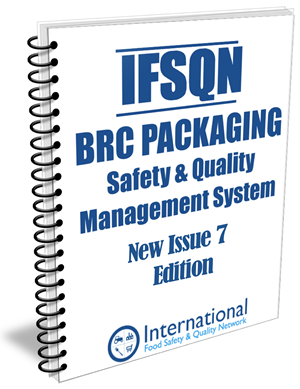- Home
- Sponsors
- Forums
- Members ˅
- Resources ˅
- Files
- FAQ ˅
- Jobs
-
Webinars ˅
- Upcoming Food Safety Fridays
- Upcoming Hot Topics from Sponsors
- Recorded Food Safety Fridays
- Recorded Food Safety Essentials
- Recorded Hot Topics from Sponsors
- Food Safety Live 2013
- Food Safety Live 2014
- Food Safety Live 2015
- Food Safety Live 2016
- Food Safety Live 2017
- Food Safety Live 2018
- Food Safety Live 2019
- Food Safety Live 2020
- Food Safety Live 2021
- Training ˅
- Links
- Store ˅
- More
Advertisement
Featured Implementation Packages
-
BRCGS Packaging Safety and Quality Management System - Issue 7
Ensure your Packaging Safety & Quality Management System meets a GFSI recogn... more
-
BRCGS (& FSMA) Food Safety and Quality Management System for Food Manufacturers - Issue 9
This comprehensive yet simple Food Safety Management System Package contains EVE... more
The Key to Audit Preparedness in Your Food-Processing Facility
Oct 27 2022 02:48 PM | Simon
pest control integrated pest managment audit audit preparedness food processing IPM
As you know, pests need food, water and shelter to thrive, and food processing facilities provide these needs in abundance. While there are common pests that frequent food-handling establishments, like flies, rodents and cockroaches, almost any animal can access your facility if the conditions are right. Many of these pests can carry and deposit dozens of harmful pathogens within your facility which can impact the health and safety employees, customers and consumers, and your finished product which is why audits need to be conducted regularly.
A failed audit can lead to fines and a tainted reputation, in addition to delayed operations required to close and fix issues. If the violations are serious enough, you could even lose customers, profits, even your business. Staying focused on partnering with your pest control supplier to be proactive and prevent pest issues as much as possible is critical to your Integrated Pest Management (IPM) program success.
IPM and Documentation
Because of the importance of food safety in your line of work, you likely already have an IPM program in place. If you don’t have one implemented, now’s the time to work with your pest control provider to make sure it is properly in place. IPM is an environmentally conscious approach to pest management that prioritizes proactive measures, such as sanitation and facility maintenance, to deter pests before they become a problem. Documentation as well as pest control services help build a solid foundation for you to be ready for the pest control portion of your third-party audit because it covers the basics you need.
Your auditor will look to your IPM program to provide insights on pest trends and threats and how your pest control provider prepares for them and handles them when they occur. Your plan should detail the preventive, corrective and ongoing actions being taken to help maintain a pest-free facility. Different auditors have different requirements or approaches to pest control so be sure to check on these in advance and make sure your pest control provider is familiar with their specific standards.
There are specific documents that should be readily available for an auditor to review to ensure your pest control program is working. Here’s a list of some of the documents they typically look for:
- A written and up to date IPM plan and review
- A copy of the valid registration for each member of the team that provides pest control services to your facility.
- Proof that every pest specialist on the team has successfully completed IPM and Good Manufacturing Practices (GMPs) training.
- Written documentation that each person on your pest control team is qualified to handle the materials and special treatments necessary.
- Pest sighting log to show any pest activity and document usage of chemicals or special treatments used to handle pests.
- A facility floor plan showing identification and correct placement of pest control devices.
- Service reports from your pest control provider.
Tips to Stay Audit Ready Year-round
Staying prepared for audits doesn’t have to be time-consuming. By following these tips, you’ll be organized and ready for any third-party pest control audits that appear on your schedule.
- Monitor your IPM program performance with your pest control provider.
- Keep your pest control documentation organized, easily accessible for auditors and thorough by taking meticulous notes.
- Use your pest sighting log to analyze pest activity trends.
- Conduct quarterly reviews of pest activity trends.
- Inspect your facility regularly and note any maintenance work needed or changes in pest hot spots.
- Check in periodically with your pest control provider to see if any audit requirements have changed.
While assessing your facility annually, ask yourself the following questions and keep your answers ready because an auditor might ask you the same thing:
- How well is my IPM program being maintained?
- What should the upcoming year look like?
- Is my documentation on track?
- And most importantly, how can I improve?
Frank Meek, BCE, Technical Services Manager, Rollins, LLC
Frank Meek is a Technical Services Manager for Rollins, parent company of Orkin, LLC. As a board-certified entomologist and 36-year industry veteran, he is an acknowledged leader in the field of pest management. For more information, email fmeek@rollins.com or visit www.orkincommerical.com.









1 Comments
Good Read! Thank You :)